
BEd Primary Education (with QTS)
Train to become a confident primary school teacher. This three year course provides a thorough grounding in education issues and includes extensive placement experience.


Top 5 in England for Education
The Guardian University Guide 2024

Apply now for this course

Keep in touch with this course
Entry requirements
Three A-levels at grades BBC or above
Or BTEC triple grades DMM or above
Or Access 30-42 D/M with min 18D
Or T level M
And GCSE English Language, Mathematics and Science at grade 4 or grade C or above
We are committed to safeguarding and promoting the welfare of children and trainees. All trainees are expected to share this commitment and demonstrate consistently high standards of personal and professional conduct.
We will accept 2 AS levels in lieu of one A level but must be accompanied by 2 A Levels or BTECs (General Studies is excluded).
UCAS points 112
UCAS code X120
UCAS institution code P63
Duration Three years full-time
Full entry requirements
As this is a professional programme, all candidates are interviewed and we look for a range of attributes and candidates must take part in an individual and group interview with representatives from schools as well as University tutors.
A DBS (Disclosure and Barring Service) check is required.
We have a responsibility to ensure that trainees have the health and physical capacity to teach. Candidates must meet the Secretary of State’s requirements for physical and mental fitness to teach as detailed in ‘Fit to Teach’ by completing an on-line medical questionnaire.
The Skills tests no longer exist as an entry requirement however, all teachers are expected to be competent in fundamental English and Mathematics. We will be assuring that trainees have these skills either during the selection process, or later during the training programme.
Please note that Level 2 Key Skills in Application of Numbers and Communication or Certificates in Adult Literacy or Numeracy, are not sufficient to meet the entry requirements to a BEd programme.
Course Summary
This versatile and dynamic primary education degree with Qualified Teacher Status (QTS) is the ideal preparation for a successful and rewarding career in primary teaching, enabling you to embark on your teaching career straight after finishing your studies. Plymouth Marjon University is praised by Ofsted and the National Student Survey for providing a comprehensive and enriching teacher training programme.
Building on long established partnerships with a diverse range of schools, all students have ample opportunities to learn with experienced primary and early years practitioners. From the start of the course students work in a range of schools gradually building up confidence and expertise.
The curriculum is based around three themes and these are embedded in all MTEP modules across our provision and is carefully structured to provide you with the skills and subject knowledge required to teach all the National Curriculum subjects.
The themes are:
- The professional role of the developing teacher
- Development of teaching and learning
- Curriculum and specialisms
Our processes are aligned with the MTEP curriculum, the CCF, the ECF, the ITE Ofsted inspection framework and the Teachers’ Standards and explicitly considers how all components are sequenced incrementally to build your expertise and confidence. You are taught, trained and supported at both the centre and on placement by expert colleagues.
This carefully structured course will provide you with the skills and subject knowledge required to teach all the National Curriculum subjects through working with experienced and passionate tutors in interactive and practical teaching sessions. Along with these subject studies, you’ll develop a thorough grounding in all the major skills and issues of education including special educational needs and disabilities, behaviour management, setting high expectations and identifying pupil progress, planning and assessment, managing the teaching and learning of a classroom team, child development, cognitive science and learning through play.
You’ll also be given the chance to select a specialism curriculum area in years two and three and choose a focus for your final-year research dissertation. The comprehensive primary programme ensures you are well-equipped to teach across the curriculum, but also offer additional skills in a chosen area, thereby enhancing your employability and leadership skills.
By combining academic study and practical experience in a range of placement settings in the South West or East London, you are fully prepared to embark on your ECT years. Opportunities also include working in special schools, outdoor centres and other educational settings or leading specific projects with children and young people from a range of backgrounds during your enhanced placement.
All BEd students can join the Primary Science Enhancement Award scheme (PSEA). The PSEA, developed by the Primary Science Teaching Trust, gives student teachers the opportunity to increase their understanding and experience of teaching and learning in primary science. In the recent pilot it was found that students reported increased confidence to teach science, and a greater awareness of where to find support for this.
Why this course at Marjon?
Long established and highly regarded Teacher Training provider locally, nationally and internationally
Diverse range of placement schools from small rural to large urban including opportunities in East London, to prepare you to teach in any type of school
All national curriculum subjects covered by specialist tutors delivered in our specialist primary classrooms
High quality, personal support in schools and on campus
Over 90% student satisfaction for last 5 years (National Student Survey)
High quality training and outcomes
Modules for this course
Course Snapshot
“ The first year is a great overview into life as a student teacher. We learnt about child development, phonics, reading and comprehension, building a strong foundation to help us in school. In our second year we had more placement experience and learnt how to manage classrooms. There’s a lot of self-reflection and improving the knowledge you have to educate children. The final year is a 10-week placement along with the dissertation.”
1st Year
An Introduction to Professional and Academic Skills for the Teacher including First Teaching Placement
Early Learning and Child Development
Child development & early learning
Foundations for Learning
Curriculum Studies: Core Subjects
Curriculum Studies: Foundation Subjects
2nd Year
Developing Professional and Academic Skills for the Teacher including Second Teaching Placement
Inclusive Practice: Meeting the Needs of All Learners
Specialism: Enhancing Knowledge and Understanding
Curriculum Studies: Developing and Deepening Core Subject Understanding
Curriculum Studies: Embedding Foundation Subjects and Religious Education
3rd Year
Professional Studies: Current issues for the teacher
Teaching Placement Phase 4 QTS
Specialism: Critical Application of Knowledge and Understanding
Honours Level Dissertation
Current students say...
Megan Mitchell
“The lecturers are brilliant and knowledgeable but also very supportive and get to know you. They provide extra opportunities to develop your passions as a teacher. For me this has been children’s literature, and I have been able to attend book groups at university and join a teachers’ reading group, which really encouraged and enhanced my development in this area. The feedback provided has always felt personal, enabling me to achieve my best. I’m so glad I choose to do this course at Marjon.”
Luke Kowalski
“I really enjoy how the course is a combination of placement and in-university sessions, enabling me to make connections between what is being done in schools and the reasoning behind it. Seminars and lectures provide practical and engaging experiences such as taking learning outside and carrying out activities that the children would do. The lecturers provide clear instructions, feedback and high levels of support and school placements have helped me to develop my confidence in the classroom.”
Will Slocombe
“The placements on the course are great and the lecturers work hard to ensure that placements are varied and that we experience each key stage. They are really supportive and encourage you to say yes to everything; this has made me more confident, both in and out of school. I was fortunate enough to complete my 2nd year placement in London which was fantastic. I have made some amazing like-minded friends on the course, enjoyed the small teaching groups and the university is really friendly.”
This course is perfect if you’re curious about these questions:
How do children learn effectively?
How can I support individual needs in the classroom to maximise progress?
How can I promote a love of learning in all children?
What can learning outside the classroom bring to a child's experience of school?
What is a broad and balanced curriculum?
What is the value of building strong relationships with children and families?
“ I have been very impressed with the depth of knowledge and understanding shown by the students. They are privileged to have such dedicated and hardworking staff who clearly enjoy working together to produce the very best outcomes. It is apparent that the Marjon BEd student is immersed in a wealth of high quality opportunities and experiences to prepare them for their future role in teaching.”
Ask a student
See where our graduates are now
Holly Power-Brown
“I work with schools to guide students through key skills, like writing CVs. I build relationships with individuals to discover their passions and we work together to research courses, apprenticeships and jobs. It is an amazing feeling knowing you’re helping someone shape their future. Marjon made me believe I could make a positive change. The BEd taught me valuable skills that I can transfer to many working situations and the staff were hugely supportive and helped me gain confidence.”
Programme Coordinator (Educating Differently) for Real Ideas Organisation
Megan Davies
“Having the most amazing lecturers at uni has allowed me to have knowledge of most the things that happen within school, including SEN children, being observed and advice from lecturers on how to deal with things. University has taught me a lot and I cannot pin point all of the things. It taught me the importance of independence and this allowed me to move out and get a job in the new part of the country, which I would never have been brave enough to do if I didn’t go to uni.”
Megan is a class teacher in a primary school
Katie Martin
“The range of subject knowledge sessions was fantastic and really boosted my confidence in teaching a range of subjects. The mathematics specialism module gave me the insight and tools to consider developing my career as a specialist and possibly one day as a subject leader. The lecturers offered support throughout this course, scaffolding our development both academically and as a reflective thinker. This will greatly impact upon my practice as a teacher and as a member of a team in school.”
Katie is a class teacher in a primary school
What might you become?
On completion you will be able to teach in a Primary or Special school as an Early Career Teacher (ECT). Graduates from this course have progressed quickly into specialist or leadership positions in a wide range of schools and locations. Ofsted praised the University’s ‘effective use of local diversity and wider links which ensures trainees have breadth and variety in their training, so making them highly employable’ (Ofsted, 2014). Over 90% of our trainees go on to secure teaching posts locally, nationally or abroad which is above the national rate. Others go on to further postgraduate study or research posts within Higher Education. Many have gone onto leadership and management positions in schools.
How you’ll be taught and assessed?
How will you be taught?
Sessions are delivered in our specialist primary class rooms, often in small group workshops. Sessions are practical and interactive to mirror primary school scenarios. You will also have lectures, seminars, tutorials, experiences in schools and in outdoor locations, both on and off-site.
How will you be assessed?
By coursework only through a range of creative assignments including portfolios, presentations, designing and making resources and written assignments. Placement assessment is carried out by school mentors and university tutors against the three themes of the MTEP curriculum:
- The professional role of the developing teacher
- Development of teaching and learning
- Curriculum and specialisms
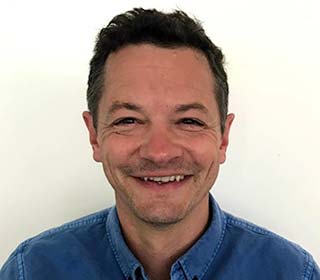
Scott teaches across the BEd Primary programmes and specialises in English. He taught for over 20 years, was a lead English teacher across South Devon, and is passionate about children's literature.
Ask a lecturer
Fees and funding
Fees UK students: £9,535 per annum
Fees for International students: £14,600 per annum
This fee covers your tuition and access to course-specific equipment and facilities, as well associated services including access to the library, study skills support, IT support, student support and wellbeing services and membership of the Student Union. There may be additional costs by course.
Funding available for this course
Our Student Funding Advisors offer confidential and impartial advice about your funding options.
Learn moreLecturers
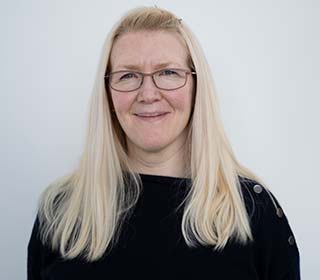
Ruth has been at Marjon for 4 years and teaches across the primary education programmes. She taught in primary schools in Devon for 14 years and was Head of School for 8 years. She is the subject tutor for history. She is Programme Lead for the Primary PGCE and specialist pathways.

Victoria Brown is a Senior Lecturer for the Marjon Teacher Education Partnership at Plymouth Marjon University with interests in:
- Early Years, Play and Child Development
- Research methods and dissertation supervision
- Teacher Professional Development
- Learning and Teaching
- Creativity
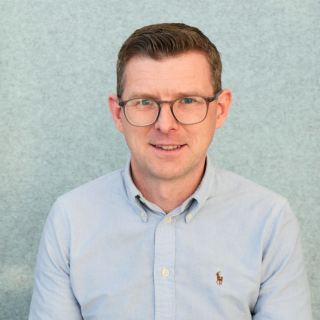
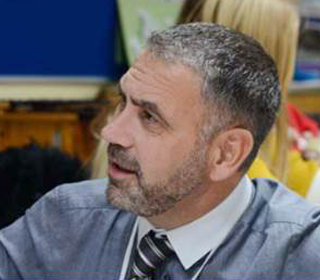
Mark Andrew Dearden is a Senior Lecturer for the Marjon Teacher Education Partnership at Plymouth Marjon University.
His present role covers areas linked to key skills in contextual and educational studies, teaching and learning in both primary and secondary schools, development of professional roles in students and teachers and subject specialisms of Art and Design (Primary and Secondary), and Design and Technology (Primary).

Giles is Partnership Leader for MTEP with a focus on maintaining partnerships and the Teaching Apprenticeship route into teaching.
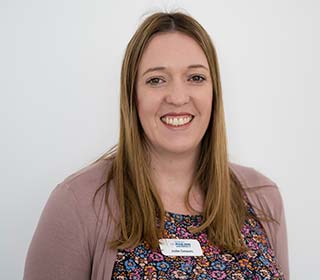
Jodie teaches on our teacher training courses, specialising in primary science as well as supporting students on placement. She is the Head of ITT and she also supports primary colleagues across the city and beyond through her work with Plymouth Science.

More information
For tips about every stage of the teacher training journey, from making your application shine to securing your first teaching role, see the how to get into teaching guide.
Apply now for this course
Find out more about studying BEd (Hons) Primary Education (with QTS) at Marjon

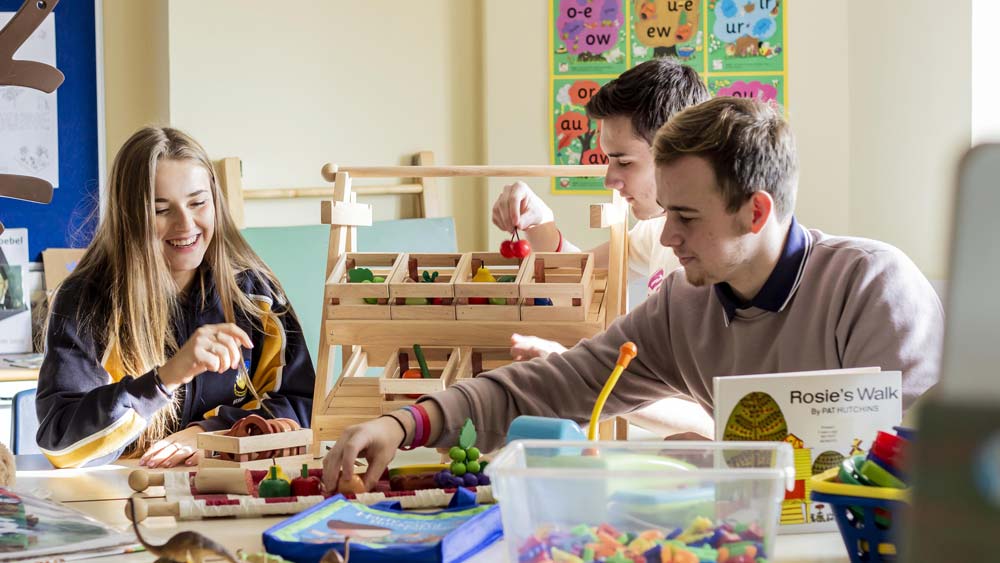
Discover Uni collects data about university courses in the UK. All universities publish Discover Uni data on their online course pages enabling you to compare similar courses at different universities.


